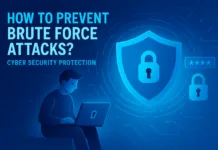As technology has advanced, so has every other aspect of our lives, including how we conduct business and interact with each other. E-commerce has grown to become one of the most popular ways to conduct business, connecting millions of customers and vendors globally.

While e-commerce offers convenience and lower operational costs, it has resulted in an increase in cybersecurity crimes. This is because so many financial activities are now conducted online.
It has therefore become important to have secure processes in place to deter hackers from stealing this data, prevent fraud and protect personal information. Here are some tips to help you secure your e-commerce site.
With Update Your Software Regularly
Updating your software regularly is essential to patch security vulnerabilities to protect your site against malicious hackers and data breaches. Updating can ensure that your customers’ data remains secure and improve other aspects of the website, including page loading speeds and overall performance.
You should check and update your software regularly, maybe biweekly or monthly, as new patches are frequently released. Whenever possible, look for options that allow for automated updates so you don’t have to keep manually updating regularly.
Thorough Security Audits
Security audits provide visibility into the weak spots of your online store and can help identify areas that need improvement to enhance security. Being diligent with these audits is also an effective way to ensure that your system is up-to-date with the latest security protocols and not vulnerable to potential threats.
A good security audit on your eCommerce site should cover all aspects of your website, from staff policies to external access points, networks, data, applications, and customer information.
Use Strong Passwords

Creating and enforcing strong password policies can help prevent unauthorized access to your accounts on computers, networks, websites, and apps like Facebook marketplace.
Strong passwords require a combination of upper and lowercase letters, numbers, and special characters. This makes it difficult for hackers to guess passwords.
Additionally, using a long password with at least 12 characters further bolsters the security of your e-commerce site as it is harder to crack than shorter ones.
Backup Data Regularly
Not only does proper backup allow for quick data restoration in case of an attack, but it also creates a secondary version of the data, which can protect against more insidious attacks like data corruption or deletion.
As a standard practice, it’s important to ensure that all backups are performed with the latest secure protocols and technologies available. Once backed up, it is recommended that you perform periodic testing of restored information to ensure the backup is working properly and that your data is secure.
Adhere to PCI Compliance Standards
PCI standards ensure appropriate security measures are taken with any technology or retail system by providing specific technical and operational requirements. These standards help secure customer information, prevent exploitation, and also help protect the business itself from data breaches and potential lawsuits should there ever be an issue.
By adhering to PCI standards, your business can reduce its liability risk while also increasing consumer confidence when sharing personal information in your website’s checkout process.
Use Secure Hosting Services
Secure hosting services offer powerful protection by constantly monitoring for malicious activity and proactively detecting cybersecurity threats, such as malware or coding errors, that can weaken your security.
Look for proven methods that protect you from malicious cyberattacks, like secure servers and encrypted web traffic. By leveraging the most advanced monitoring tools and expertise of secure hosting providers, your e-commerce sites can focus on delivering better user experiences while having peace of mind that their site is safer.
Enhance the Security of Online Payments Processes
Securing online payments not only helps protect your customers’ data but also safeguards the sensitive information involved with money transfers. Implementing technology such as two-factor authentication, encryption, and digital signatures are some effective ways to ensure that payment transactions remain safe and secure.
These technologies create an additional layer of protection that minimizes the risk of message interception or hacking.
Use a Strong Customer Authentication System
Implementing a strong customer authentication system can involve taking steps such as verifying customers’ identities through multiple methods and levels, instituting password strength requirements, enforcing time-outs for inactive accounts, and enabling two-factor authentication.
These measures will go a long way toward protecting your site from possible data breaches or online fraud.
Protect Against Chargeback Fraud
Chargeback fraud has become an increasingly popular way for organized crime to source goods for free without paying by exploiting payment processing rules. To protect your business, you should regularly monitor incoming orders and shipments to detect any suspicious activity.
You can also consider using a specialized fraud prevention system that utilizes data analytic tools to recognize patterns and stop suspicious transactions before they occur. Additionally, implementing strong authentication processes like requiring additional verification Information or using Strong Customer Authentication (SCA) can help prevent unreliable customers from making fraudulent payments.
Finally, you should keep up-to-date on payment industry security protocols so that you can quickly respond if something comes up.
Educate Customers and Employees
A great way to maintain a secure website is by educating customers and employees on how to use and protect data properly. Educate customers on handling sensitive or personal information such as credit card numbers or passwords, teach them about phishing attacks and malware threats, and encourage them not to click links from sources they do not trust.
On the employee side, make sure your staff is trained on security measures and new threats that could affect the website. Additionally, instruct employees to recognize common forms of fraud and scams and have processes in place to detect suspicious activity.
Conclusion
Having a secure e-commerce site is essential in today’s digital landscape. By taking the necessary steps to secure your website, you can protect it from malicious cyberattacks and ensure the safety of your customer’s data and your online presence.
While there are many ways to improve an e-commerce site’s security, some of the most important tips include using strong passwords, encrypting customer data, conducting routine security assessments, and engaging in customer and employee training. You can also backup data, use secure web hosting, and update your software regularly.



